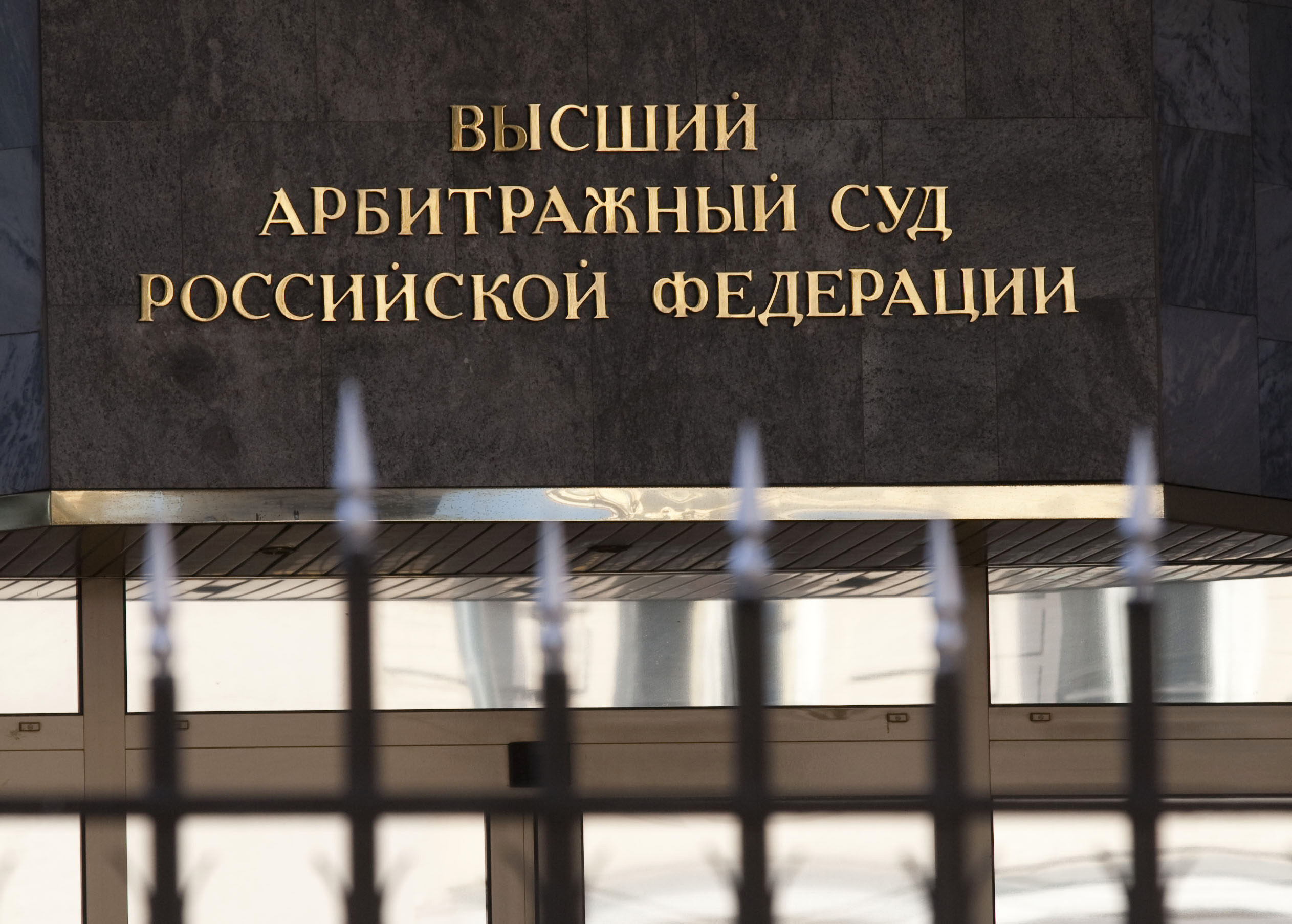The plenum of the Supreme Commercial Court of the Russian Federation (SCC) approved and is ready to submit to the lower house of Parliament (State Duma) the draft federal law on the broader use of fast track litigation procedures. Its enactment will provide relief to the arbitration courts’ overworked staff.
By Sergei Feklyunin, RAPSI
“The pundits criticized the first draft and we’ve come up with a balanced text,” Anton Ivanov, the SCC chairman, said while introducing the draft to the plenum. “I believe the chances are high that it will be approved, maybe even by this Duma.”
He reminded the audience about the president’s instructions to relieve the arbitration courts of their excessive workload.
Ivanov said this will improve the chances of passing the bill quickly.
“I have a feeling it’ll be adopted soon,” he said.
The SCC Presidium approved the general framework of the draft law “On Changes to the Arbitration Procedural Code of the Russian Federation in Connection with Improvements in Fast Track Litigation” in December 2010.
The purported changes to the Arbitration Procedural Code seek to expand the list of arbitration cases subject to fast track litigation procedure.
Mandatory
The current Arbitration Procedural Code uses fast track litigation in the following three types of cases: 1. Overdue utility bills (electricity, water, telephone, etc.); 2. Disputes with a defendant admitting, but failing to comply with the claim; 3. And, lawsuits filed against corporations for up to 20,000 rubles or against sole proprietors for up to 2,000 rubles.
The amended draft proposes increasing the claim amount in civil cases subject to fast track litigation to 300,000 rubles for corporations and 100,000 rubles for sole proprietors.
All other administrative claims below 100,000 rubles, such as the imposition of administrative sanctions up to 100,000 rubles, the contestation of such impositions, or the gathering of mandatory fees and penalties will also be fast tracked.
Regardless of claim amount
In addition, the draft extends fast track arrangements in the following cases despite the claim amount - disputes over unpaid utility bills substantiated by documentary evidence, disputes with a defendant admitting, but failing to comply with the claim, and actions involving debt recovery under loan agreements. Claims below 100,000 rubles, which come together with non-property claims, will also be fast tracked if the draft is approved.
A transition is possible
The draft provides for an optional transition from fast track to conventional litigation if a third person with separate claims joins the litigation, if a counterclaim is filed that cannot be settled in fast track litigation, or if an expert analysis or witness subpoenas are needed.
By the same token, a court may also switch to fast track litigation on its own accord or upon the initiative of the litigating parties in cases when it’s not mandatory.
If the claim amount exceeds the established upper limit, the court may suggest fast track litigation and give the parties 10 days to decide.
If a plaintiff requests fast track litigation, the court will give the defendant 30 days to prepare a statement of defense or object to the use of fast track litigation.
According to the draft, whenever both sides don’t object to fast track litigation before the established deadline, the statement of claim and the decision to initiate proceedings in the case will be posted on the court’s website. The defense’s statement will also later be posted on the website.
No fast track litigation
The draft prohibits fast track litigation in cases involving corporate disputes or collective actions as such cases and disputes involve many participants and revolve around complex issues.
Specifics of procedure
According to the draft, the court will use fast track litigation without summoning the parties, as it does now. The parties will use the Internet to get familiar with the evidence, comments and objections produced by the other party. Access to these documents will be restricted to the litigating parties.
The draft sets forth the deadline for submitting dispute-related paperwork to the case files at least 30 days from the day when the ruling is rendered to initiate the proceedings in the case.
No paperwork will be accepted after the deadline. References to evidence not provided within the established deadline will be ignored.
A ruling made during fast track litigation may be appealed within 10 days. Notably, the judge in a court of appeals will use his own discretion to decide on such petition.
A three-judge panel now considers such appeals.
Extra charge for hard copies
According to the draft, the parties will still have the option to file paper-based documents. But in this case they will need to pay a fee of 10 rubles per page with a minimum payment of 100 rubles. The fee will be used to offset budget expenses of 85 million rubles arising in connection with the law’s adoption.
Vladimir Korneyev, the head of the SCC Public Law and Process Department, said the extra financing will mostly be used to cover labor expenses since the courts will need to hire two operators each to scan paper documents. Korneyev said the law’s adoption will benefit courts and trial participants alike, as judges will see their workload decrease and participants will save on commute time and expenses.
Comments by SCC head
Speaking to the Russian Agency of Legal and Court Information (RAPSI) about the fast track litigation draft earlier, Ivanov said “the main issue arising from various forms of fast track litigation is the ability to clearly identify cases that need full-blown litigation and cases that can be fast tracked.”
According to the SCC head, the model aims to fast track regular cases involving small amounts of money that don’t call for complicated discussions in court.
Ivanov noted that the parties should nevertheless have the option to fall back on a full-blown procedure if need be.



